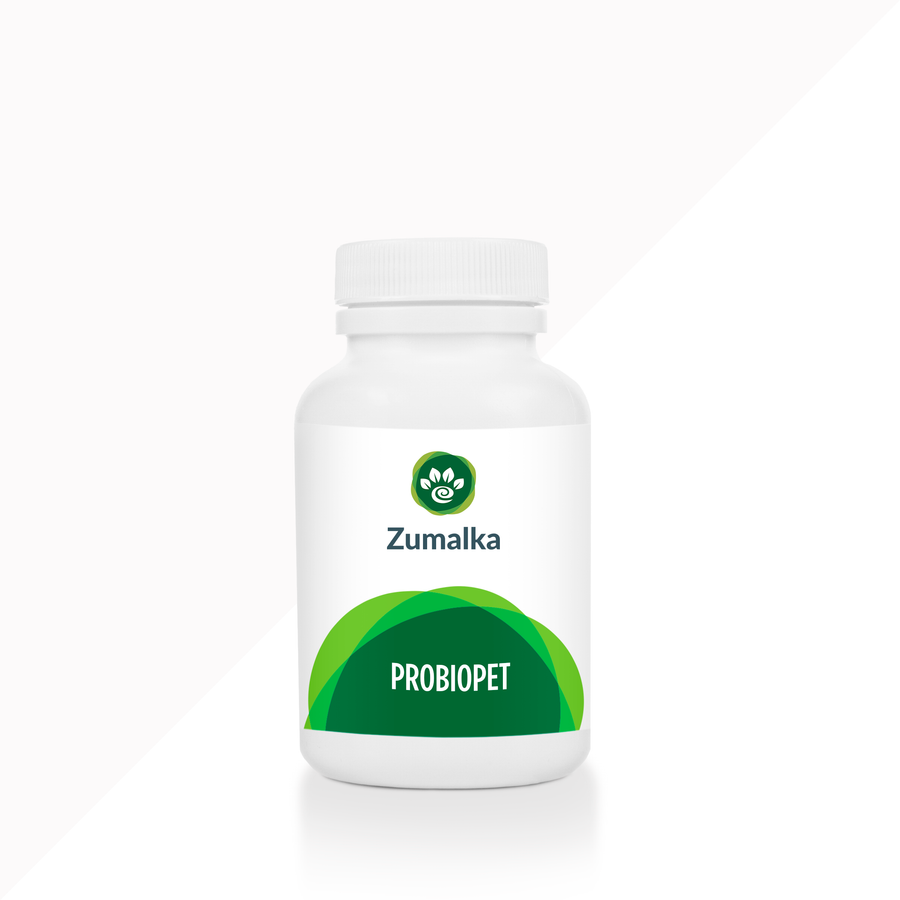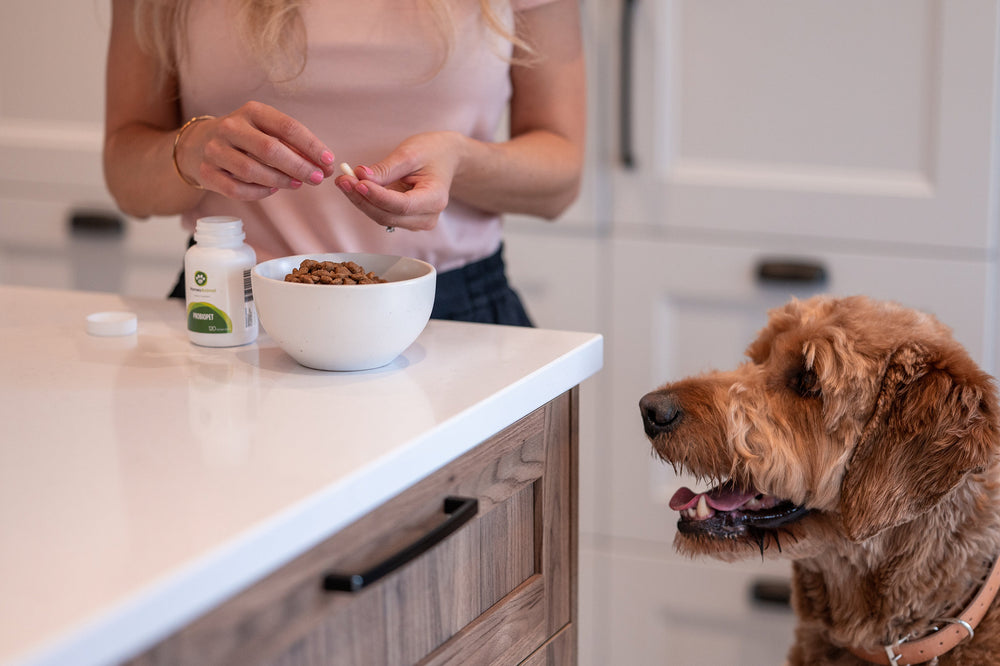Senior Labrador Diet: 8 Key Nutrition Expert Tips for a Healthy Life
As Labradors age, their nutritional needs change to support a slower metabolism, joint health, and immune function. Adjusting your senior dog’s diet ensures they stay healthy, active, and comfortable throughout their golden years.
Tailoring your senior Labrador’s nutrition can greatly improve their quality of life and help manage age-related health issues. With the right diet, you may even extend their lifespan and keep them thriving well into their golden years.
Feeding your senior Labrador requires special attention to support their changing health and energy needs. Here are 8 essential dietary tips to help you keep your aging Lab healthy, active, and happy:
#1. Know When Your Labrador Is a Senior and Why Expert Guidance Matters

Labradors are typically considered seniors between 5 and 8 years old, when their nutritional needs begin to change. Prioritizing expert guidance at this stage helps you tailor their diet for long-term health and vitality.
Before making major changes to your senior Labrador’s diet, consult your veterinarian for a full physical and metabolic assessment. Working with a pet nutritionist can also provide personalized guidance to support your dog’s specific health needs.
A senior pet visit typically includes a physical exam, diet review, bloodwork, and urinalysis to detect early signs of health issues. These screenings help identify risks and guide dietary adjustments for your aging Labrador’s specific needs.
Your veterinarian and pet nutritionist are key partners in evaluating your senior Labrador’s nutritional health. They can recommend a personalized diet to support your dog’s age, lifestyle, and medical needs.
#2. Control Calories to Keep Your Senior Labrador at a Healthy Weight
Older Labradors experience a natural decline in metabolism, which can lead to unwanted weight gain. Adjusting calorie intake is essential, as senior dogs generally need fewer calories than their younger counterparts to stay fit and healthy.
Managing your senior Labrador’s daily calorie intake is essential to preventing obesity and its associated health risks. Proper weight control can lower the chances of conditions like cancer, kidney disease, diabetes, arthritis, and immune disorders.
Research shows that adult dogs fed 20–25% fewer calories may age more slowly and live longer. Calorie restriction has been linked to the delayed onset of age-related health issues and improved longevity in senior dogs.
Portion feeding, dividing your Labrador’s daily food into two or more meals, allows for better calorie control and appetite monitoring. This approach supports healthy weight management and makes it easier to detect changes in eating habits.
Feeding guidelines on pet food labels often overestimate how much your Labrador needs, especially as they age. For accurate portions, consult your veterinarian or pet nutritionist to get a personalized feeding recommendation.
#3. Support Muscle Maintenance in Senior Labradors with High-Quality Protein

Protein is essential for senior Labradors, helping to preserve muscle mass as they age. Maintaining strong muscles supports mobility, overall health, and quality of life in older dogs.
Senior Labradors need higher-quality protein than younger adults to support aging muscles and overall health. Choosing protein-rich, easily digestible foods helps meet their changing nutritional needs.
When selecting food for your senior Labrador, choose a formula that lists real meat as the first ingredient. High-quality animal protein supports muscle maintenance and provides essential nutrients for healthy aging.
As pets age, their muscles and bones naturally weaken, affecting mobility and overall comfort. Adding TONICPET #1 and TONICPET #2 can help nourish and strengthen these areas, supporting healthy aging. These natural supplements are a gentle way to promote long-term musculoskeletal health in senior pets.
High-protein diets have not been shown to cause kidney disease in healthy senior dogs. However, if your Labrador develops kidney issues, it’s important to reassess their protein and phosphorus intake with your veterinarian or pet nutritionist.
#4. Enhance Senior Dog Gut Health with Fiber and Digestible Carbohydrates
As Labradors age, their digestive systems can become less efficient, reducing their ability to absorb nutrients. Supporting gut health is key to ensuring your senior dog gets the most from their food.
Easily digestible carbohydrates help support your senior Labrador’s digestive health and provide steady energy. They also reduce the risk of issues like constipation by being gentle on the gastrointestinal system.
Choose gentle carbohydrate sources like brown rice, sweet potatoes, and oats to support digestion in senior Labradors. Increased dietary fiber also plays a key role in promoting gut health and maintaining regular bowel movements.
Fiber-rich ingredients like pumpkin, green beans, and apples can support healthy digestion in senior Labradors. These natural sources help regulate bowel movements and contribute to overall gut health.
Have you considered adding probiotics to your senior dog’s routine?
Searching for high-quality probiotics for your pet? Zumalka’s PROBIOPET has a premium natural formula that helps support digestive health and strengthen the immune system in both dogs and cats. Packed with active, beneficial microorganisms, PROBIOPET helps maintain balanced gut flora and overall wellness.
#5. Promote Healthy Aging with Proper Hydration
Water is the most essential nutrient for dogs at any life stage, but senior Labradors are especially vulnerable to dehydration. Aging dogs may drink less due to reduced thirst cues, making consistent hydration a top priority.
Provide your senior Labrador with constant access to clean, fresh water, and regularly monitor how much they drink. A decrease in water intake can be an early sign of dehydration or a potential health issue.
Regularly cleaning and refilling your senior Labrador’s water bowl helps remove debris and odors that may discourage drinking. Keeping water fresh encourages healthy hydration and supports overall wellness.
To boost hydration, offer your senior Labrador canned food, add ice cubes to their water, or use a pet drinking fountain if they prefer running water. Encourage your dog to stay hydrated by placing multiple water bowls near their favorite resting spots.
Zumalka's TONICPET #9 helps support healthy hydration and can be added to your pet’s food or water to help prevent dehydration. These simple strategies can make drinking more appealing and support better overall health.
#6. Support Joint Health and Mobility with Targeted Supplements

As Labradors age, joint issues like arthritis and reduced mobility become increasingly common. Proactive joint support can help preserve movement and improve your senior dog’s quality of life.
Joint supplements can significantly improve comfort and mobility in senior Labradors. Adding the right support early can help manage stiffness, reduce inflammation, and enhance overall quality of life.
Omega-3 fatty acids like EPA and DHA, found in fish oil, flaxseed, and chia seeds, help reduce inflammation and support joint mobility. These nutrients are especially beneficial for easing discomfort and enhancing movement in senior Labradors.
Glucosamine, chondroitin, and green-lipped mussel are key supplements that help protect cartilage and support joint health in senior Labradors. These ingredients can reduce stiffness, improve flexibility, and slow the progression of arthritis.
Consult your veterinarian or pet nutritionist before introducing joint supplements to your senior Labrador’s routine. Their guidance ensures safe, effective support tailored to your dog’s individual needs.
Not sure which joint supplement to choose?
Joint pain and stiffness can leave pet parents feeling helpless, but Zumalka’s GET UP N GO helps offer fast-acting relief. This homeopathic blend supports healthy cartilage, tendons, and ligaments to ease discomfort and improve mobility. Ideal for pets with inflammation, stiffness, or sensitivity, it promotes better joint health and overall quality of life.
#7. Help Your Senior Labrador Stay Sharp with MCTs and Antioxidants
In senior dogs, the brain’s ability to use glucose for energy often declines, affecting memory and cognitive function. This change can impact learning, awareness, and decision-making in aging Labradors.
Vitamins C and E, powerful antioxidants, support brain health and cognitive function in senior dogs. They may help improve memory and slow age-related mental decline in aging Labradors.
Antioxidants can be given as supplements or through nutrient-rich fruits and vegetables like blueberries, raspberries, apples, carrots, and spinach. These natural sources help support cognitive function and overall brain health in senior Labradors.
Medium Chain Triglyceride (MCT) oils provide an alternative energy source for the aging canine brain. Research shows that MCT-enriched diets can enhance cognitive function and mental sharpness in senior dogs.
#8. Make Smart Treat Choices and Protect Your Labrador’s Teeth
Treats are an important part of your Labrador’s overall diet and should be chosen with care. Consult your veterinarian or pet nutritionist to ensure snacks align with your senior dog’s nutritional and health needs.
Commercial dog treats are often high in calories, which can lead to weight gain in senior Labradors. Instead, opt for low-calorie treats or offer water-rich vegetables like green beans, carrots, cucumbers, broccoli, and lettuce as healthy, satisfying alternatives. Remember that these should be served in moderation.
Fruits like apples, bananas, oranges, and berries make excellent low-fat treats for senior Labradors when served in moderation. Avoid table scraps, as they’re often high in fat, sodium, and lack the balanced nutrition your dog needs. Moreover, avoid feeding your dog toxic foods like garlic, onions, leeks, chives, chocolate, alcohol, and anything containing artificial sweeteners like xylitol.
Maintaining dental health is vital for senior Labradors to prevent pain, tooth loss, and other health complications. Routine cleanings, dental exams, and safe dental treats help support comfortable eating and overall wellness.
With the right dietary adjustments and guidance from your veterinarian and pet nutritionist, you can support your senior Labrador’s health and vitality. A well-balanced, age-appropriate diet lays the foundation for a longer, happier life.
FAQs
How much food should a senior dog eat a day?
A senior dog’s daily food intake depends on age, weight, activity level, and health conditions. Older dogs typically need fewer calories, so consult your veterinarian or pet nutritionist for a tailored feeding plan.
What is the best thing to feed a senior dog?
The best food for a senior dog is a balanced, age-appropriate diet rich in high-quality protein, healthy fats, and essential nutrients. Choose formulas designed for senior dogs and consult your veterinarian or pet nutritionist for recommendations.
What is the best time to feed a senior dog?
The best time to feed a senior dog is twice daily, once in the morning and once in the evening. Consistent meal times support digestion, maintain energy levels, and help manage age-related health conditions effectively.
Should senior dogs eat wet or dry food?
Whether wet or dry food is best for a senior dog depends on their dental health, hydration needs, and preferences. Ask your veterinarian or pet nutritionist which option offers the right nutritional support for healthy aging.
How to make homemade senior dog food?
To make homemade senior dog food, use lean proteins, cooked vegetables, and easily digestible grains. Include healthy fats and essential vitamins. Always consult your veterinarian or pet nutritionist to ensure balanced, age-appropriate nutrition.
Can a senior dog eat once a day?
While a senior dog can eat once a day, feeding smaller meals twice daily is generally better for digestion, energy levels, and blood sugar stability. Consult your veterinarian for a schedule that suits your dog’s needs.
How long can a senior dog go without eating?
A senior dog should not go more than 24 hours without eating, as extended fasting can signal underlying health issues. If your older dog refuses food, contact your veterinarian or pet nutritionist promptly for evaluation and appropriate care.
Should senior dogs eat more or less?
Senior dogs usually require fewer calories because of reduced activity and a slower metabolism. However, they still need nutrient-rich meals. Talk to your veterinarian or pet nutritionist to determine the best portion and diet.








Leave a comment